#77 How To Get Rid Of Bloating
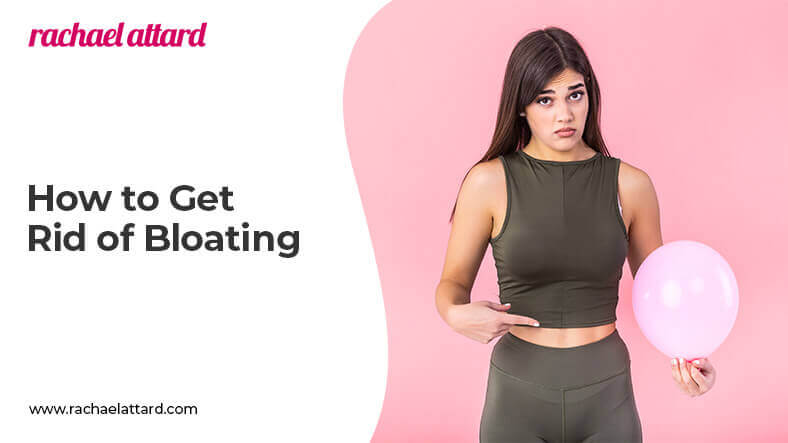
I hate feeling bloated! It’s such an uncomfortable experience. You don’t feel your best, your body is in pain, and your clothes don’t feel like they fit just right.
In my experience, bloating is a common problem for women. I don’t know about you, but whenever I get bloated, there’s not much I can do about it besides wait it out.
The best thing to do about bloating is to prevent it from happening in the first place. And there are things that you can do to help reduce how bad it is or how often you get bloated.
What Is Bloating?
Sometimes, you might notice that your stomach feels swollen or full, especially after you eat. This is called feeling bloated, and everybody feels this way at times. In fact, nearly 30% of people say that they feel bloated frequently.
Feeling bloated can cause pain, make you feel uncomfortable, or make your pants feel too tight. Bloating can make your stomach look swollen, but at times you might just feel extra sensitive in your digestive system.
Bloating occurs when there is more air, gas, solid, or liquid in your gastrointestinal system than needed. When you feel bloated, you might also:
- Experience pain
- Have a gassy stomach
- Notice rumblings from your abdominal region
What Causes Bloating?
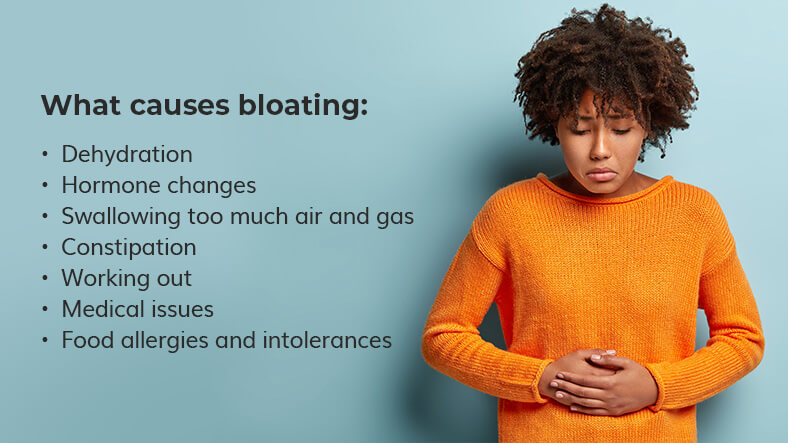
Dehydration
People often think that their bloated stomach is caused by drinking too much water. But, really, the opposite is normally true. Dehydration can cause bloating!
When you don’t drink enough water, your body will hold onto the little water that it has. This will make you feel sluggish and swollen! If you drink more than enough water, your body will filter it out when you urinate. Light-colored pee means that you’re drinking enough water. Pee that is darker than light yellow means you’re not drinking enough water!
I suggest that you drink at least 2L of water every day. If you work out, you should be drinking even more water than this!
Alcohol and caffeine can both cause dehydration. If you drink a lot of either of these, consider cutting back. :)
Hormone Changes
Bloating is sometimes caused by hormonal factors. Some women experience bloating from birth control, their periods, and other hormone-related issues.
It is normal to have some bloating during your period or right before it. :) When you’re on your period, your body often responds by holding onto extra water and creating gas.
If you notice that you bloat during this time of the month, try to be extra careful with your diet and eat foods that you know your stomach responds well to. Working out, avoiding sugar and other carbs, and limiting your salt intake can help too.
Your bloating should stop after your period ends. If you continue to struggle with it and have looked into other possible causes, consider talking to your doctor about other possible hormone issues to look into.
Swallowing Too Much Air and Gas
Swallowing air is a HUGE cause of bloating. I’m sure you don’t go around purposefully swallowing air, but we all do it accidentally sometimes when we talk, chew gum, swallow our food, or eat hunched over. Eating too quickly can also cause you to swallow air by mistake.
Some food and drinks we consume also have extra air and gas in them that can cause bloat. The bubbles in soda, champagne, and other bubbly drinks are full of gas that can fill up your digestive system. If the gas reaches your intestines, it takes your body time to get rid of it.
Constipation
Most people will be constipated from time to time. If you are irregular, you will probably also feel bloated. Constipation can be caused by so many things, including medicine, stress, dehydration, poor diet, dietary changes, or a sedentary lifestyle.
Most of the time, exercise and over-the-counter medicine will help relieve your constipation. If your constipation lasts more than a few days, you should talk to a doctor.
Working Out
Have you ever felt swollen after a workout? You’re not alone! Bloat after exercise is pretty common.
Most likely, you feel bloated after working out because of the huffing and puffing you do. Breathing deeply can make you accidentally swallow air, which can lead to more bloat.
People who are new to exercise, tend to have a bigger issue with this. The stronger your cardiovascular system becomes, the less you should be gasping for air. Over time, your bloat should stop too.
Breathing in through your nose and out through your mouth can help with this. If you still struggle, consider taking 5-10 minutes before or after your workout to do a breathing exercise. This can help you train your mind to breathe more intentionally. If this doesn’t work, try belching. I know, this sounds gross! But, really, a simple burp can help you feel better right away.
Medical Issues
Certain medical problems can cause a lot of bloating. If your bloat is persistent, it might be worth talking to a doctor about it to rule out more serious causes.
Bloating is a common side effect of the following medical issues:
- Food intolerances and allergies
- Celiac Disease
- Irritable Bowel Syndrome
Food Intolerances and Allergies
Any type of food allergy or intolerance will irritate your digestive tract and cause bloating.
Food allergies and intolerances are pretty common, and some of the most common types of food intolerances/allergies are to:
- Lactose
- Fructose
- Eggs
- Gluten
Talk to your doctor or consider doing an elimination diet if you think you have a food intolerance or allergy.
Also, many of us eat more salt, sugar, and fat than we need (especially if you eat a lot of packaged food!). These things are necessary for us to function, but too much of them can be hard to tolerate. Try eating complex carbs, instead of simple carbs. These take longer to digest, and they are often better on the digestive system.
Foods That Cause Bloating
Bloating is pretty common, and certain foods are most likely to cause bloating.
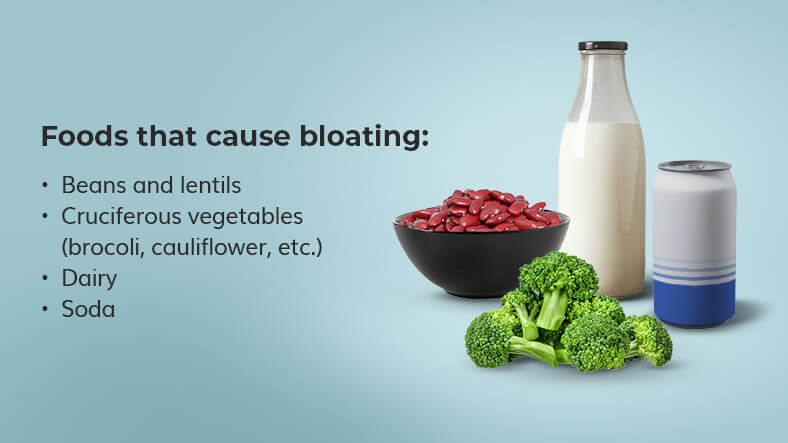
Beans and Lentils
Beans and lentils are, in general, good for you. They have a good amount of protein, contain complex carbs, and are high in fiber. But most beans contain alpha-galactosidase, which belong to a group of carbohydrates called FODMAPs (or fermentable oligo-, di-, mono-saccharides, and polyols).
Some people, including those with Irritable bowel syndrome (IBS), have trouble digesting FODMAPs. When they eat food with FODMAPs, their bodies produce excess gas, which causes pain and bloating.
If you’re sensitive to beans, you can try soaking them overnight to reduce the alpha-galactosidase. Some people might find that they feel best by avoiding beans and lentils completely.
Cruciferous Veggies
Broccoli, cauliflower, cabbage, and brussels sprouts are examples of cruciferous vegetables. These veggies are great for most people. I love that they are full of vitamins and minerals, like fiber, vitamin C, vitamin K, iron, and potassium.
But these veggies also contain FODMAPs, making them harder for people with sensitive digestive systems to process. Cooking these vegetables, instead of eating them raw, can help your body digest them and reduce your bloat.
If cooking these vegetables doesn’t help, you might need to consider cutting them from your diet and picking other vegetables instead.
Dairy
Dairy is one of those foods that can be so delicious! I love some good ice cream or cheese now and then. Unfortunately, most people have trouble breaking down the lactose found in dairy. In fact, about 75% of us are lactose intolerant.
If you notice that you feel bloated, experience pain, or have gas or diarrhea after eating dairy, you might be lactose intolerant.
Soda
Soda and other carbonated drinks are a common cause of bloating. As I mentioned, the bubbles in these drinks contain carbon dioxide, a gas. Drinking a can of soda can leave you feeling uncomfortable because of the high amount of gas that you swallow.
Try cutting out soda (even soda water!) if you struggle with a lot of bloat. :)
How to Get Rid of Bloating?
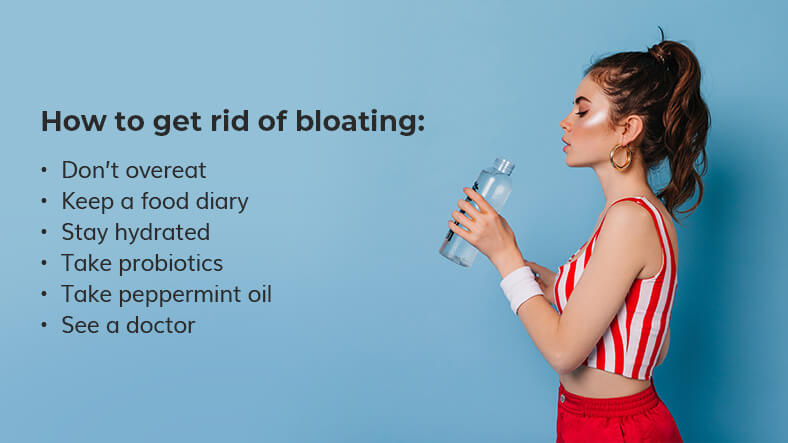
1. Work Out The Cause Of Your Bloating
In the past I have suffered from severe bloating and had no idea why. It wasn’t until I discovered that I had food intolerances that I found a way to manage my bloating.
To prevent the bloating, you need to know what is causing it. As I mentioned, bloating can be caused by a range of things including food intolerances, dehydration, alcohol, overeating, hormones, that time of the month and medication including the contraceptive pill.
2. Don’t Overeat
This one is pretty easy. Your stomach is about the size of your fist. When you overeat, it can expand, but this process can be uncomfortable.
Try eating slowly and carefully. Chew your food thoroughly before you swallow. This can help your body digest your food later on, and it can help prevent you from overeating. Your meals will also feel more satisfying this way! Plus, chewing thoroughly keeps you from swallowing a bunch of air.
Eating smaller meals throughout the day, instead of three large meals, can also help.
3. Keep a Food Diary
Because food intolerance is such a common cause of bloating, it is helpful to keep track of what you eat to see what your body might not be tolerating.
I’ve had success with keeping a food diary to help me know which foods trigger gut problems and bloat. Write down what you eat and drink, and make notes of how you feel afterward. This will help you know which foods work for your specific body and which foods you should avoid.
When you find out what food intolerances you have, you should obviously stop eating that food or look for alternatives. For example, if you are lactose intolerant (like me), try almond or soy milk.
4. Stay Hydrated
Often people think that there bloating is caused by drinking too much water, when in fact, it is actually the opposite. When your body doesn’t get enough water, it holds on to as much water as it can to try to conserve what water is left.
If you drink too much water, your body will regulate itself and pass it in your urine. As I’ve said, a good way to find out if you are drinking enough water or not is to check the colour of your pee! If it is a light yellow, you’re drinking enough. Any darker than this, and you need to drink more.
Aim to drink at least 2L of water per day, and more if you exercise regularly.
Peppermint can also help your gastrointestinal muscles to relax. This helps them release the gas that is causing any bloat. You can take peppermint oil as a supplement.
You should also reduce your alcohol intake because alcohol causes dehydration and bloating.
5. Take Probiotics
Studies have shown that probiotics help reduce gas. Because gas produced by bacteria in the intestines is a big cause of bloating, taking probiotics should help with bloating too. You can take a probiotic supplement or eat foods that contain probiotics (like plain Greek yoghurt).
Probiotics can take time to work, and some people have to experiment with the different types of probiotics before they find what works best for them.
6. See a Doctor
Bloating can also be caused by your hormones, the pill, your menstrual cycle and other issues. It is normal to experience some bloating around that time of the month.
If you’ve eliminated all issues from your diet and you’re drinking enough water, but still are still having bloating problems, then it might be best to go and see your doctor. It is better to be safe than sorry, and get a check up.
They doctor will help you discover if you have any hormonal issues or other chronic medical problems going on.
Foods That Reduce Bloating
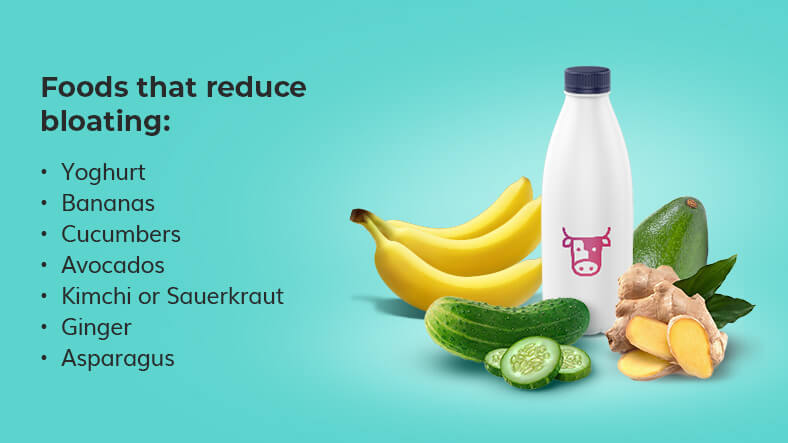
You know what foods to avoid, but there are also some foods that can help with bloating. These are some of my favourite foods to keep in my diet that help reduce gas, improve hydration, reduce water retention, or reduce sodium levels:
Yoghurt
Yoghurt is an excellent way to eat probiotics. If you struggle with eating yoghurt because you are lactose intolerant, consider trying kefir. It is 99% lactose free, but it still contains probiotics.
Bananas
Bananas are full of potassium. Potassium helps your body reduce bloat by flushing out excess sodium and water. Although eating a banana won’t automatically reduce bloat, keeping them in your diet should help over time.
Cucumbers
Cucumbers are full of water, and they help you stay hydrated. In addition to this, they contain sulfur and silicon, which help you pee.
Avocados
Avocados also contain a lot of potassium. If you don’t like bananas (or are on a diet like keto, and want to limit your carbs), avocados are an excellent alternative.
Kimchi or Sauerkraut
Like yoghurt, these foods contain probiotics that will help reduce the gas in your intestines.
Ginger
I love ginger for its soothing properties. Ginger helps reduce inflammation in your colon, making your abdominal region feel better. It will also help you pass your food more easily.
Asparagus
Asparagus contains the amino acid asparagine, which is a diuretic. This helps reduce water retention. Asparagus also contains prebiotic fiber, and it helps to nourish the probiotics that are in your gut.
I hope that this article helps you understand why you get bloated, the common causes of bloat, and how to keep that awful bloated feeling at bay. Let me know if you have any questions in the comments!
Love Rachael xx
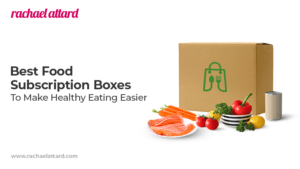
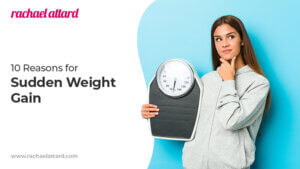

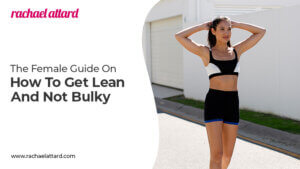
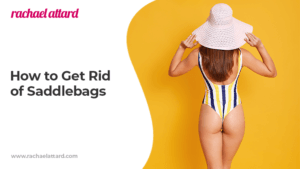
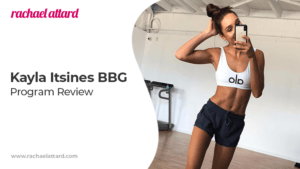
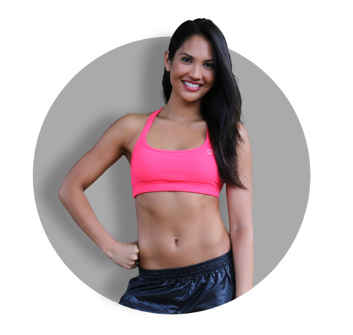
Hi Rachael!
Thank you for inspiring post!
I started to run about a year ago, HIIT and longer jogs. My thigts have gotton slimmer but I recently noticed that my calves are getting larger. What can I do to make them smaller again!? Should I stop running? What are other cardio exercises which will burn belly fat without getting larger calves!?
Hope you will answer! Have a wonderful day.
Hi Sonja, Rachael here. No need to stop running. Running actually does build a little bit of muscle so that’s why you’ve noticed your calf muscles increase. Try to keep your running on a flat surface and also incorporate power walking. It will take a while to reduce the size of your calf muscles though. HIIT weights workouts are probably your best option for burning belly fat in general and will definitely not make your calves bigger :) x